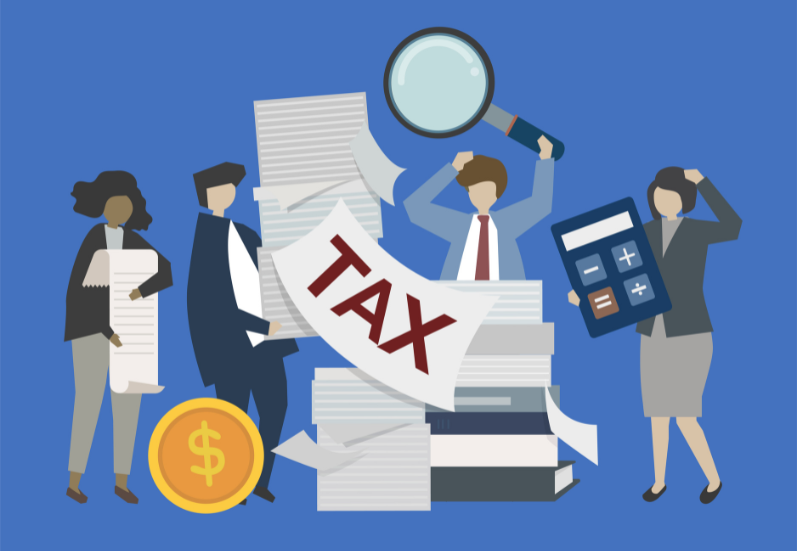
US citizens, permanent residents, and business entities are legally required to pay applicable taxes for the money they make in and outside the US. Non-permanent residents may also be required to pay taxes under some circumstances. However, only the income they make in the United States is subject to federal income tax.
Failure to pay taxes is a federal offense, prosecuted in a federal court under federal tax evasion laws. If you are under investigation for a tax-related offense in Washington, DC, you may want to familiarize yourself with federal tax evasion laws. You may also want to seek legal advice from a federal tax fraud lawyer.
What Is Tax Evasion?
Tax evasion is an illegal and deliberate avoidance of taxes owed to the IRS. Under tax evasion laws, the definition of the term tax evasion is broad, allowing the IRS to go after individuals and businesses for a wide range of actions defined under the law.
These actions include underreporting annual income, inflating qualifying deductions, concealing taxable money, and transferring funds to offshore accounts. The person or entity’s actions regarding tax evasion determine the tax evasion charges they face.
Personal income tax evasion occurs when an individual falsifies their income data, while business tax evasion occurs when a business falsified data to pay less. On the other hand, employment tax evasion occurs when an employer avoids forwarding taxes collected from their employees to the IRS, among other employment tax avoidance techniques.
Common Means of Tax Evasion
There are numerous ways in which individuals would avoid taxes, and this is mostly done through wrongful intentions where they usually manipulate financial documents. Some of these techniques are:
1. Underreporting Income
One of the most essential tax-avoidance ways under the underreporting income source is:
- Underreporting cash earnings, that is to say: tips or secret payments.
- It also includes hiding income from self-employment income, rent received, or night jobs.
- Giving false returns to tax authorities.
- Declaring income business revenues lower than received and deducting more expenses than incurred.
2. Hiding Money in Foreign Banks
Individuals and companies move money abroad with small or no tax; such countries are often referred to as “tax havens.”
Opening offshore accounts is legal, but it turns into tax evasion when they do not declare it or income from such offshore accounts.
Switzerland, Cayman Islands, and the Bahamas are very popular because of their trendiness in financial secrecy, thus attracting many tax evaders.
3. Misreporting Deductions or Expenses
The other one tries to minimize taxable income by claiming deductions or expenses that they have no business paying for. Such includes:
- Presenting personal costs as business costs.
- Over-inflating donations beyond what they actually were.
- Creating fictitious dependents as qualifying for credits.
- Filing false invoices or receipts.
4. Failure to File Taxes
Some people even voluntary fail to file taxes, which will be another form of tax evasion.
Such taxpayers will not file under any circumstances, but the reason is these are the high-profile ones with enormous liabilities who would prefer to opt otherwise by staying away from the radar of tax authorities.
Not filing, however, does not mean that a person is free of taxes, for the individual may face adverse legal consequences in reaction to this act.
5. Engaging in Tax Fraud Schemes
Some taxpayers or companies have innovative ways of evading tax, including:
- Identity theft: Submitting fake tax returns using stolen identities and claiming refunds.
- Shell companies: Shell company creation to hide assets and evade tax.
- Circular transactions: Creating a circular transaction among different entities for tax evasion purposes.
6. Misclassification of Employees as Independent Contractors
This is the action taken by firms to keep their employees out of the reach of payroll taxes and benefits by misclassifying them as independent contractors.
False misclassification is cost-saving in terms of taxes, but that does not make it lawful.
When Can The IRS Charge You With Tax Evasion?
The IRS has a six-year window for pursuing an individual for tax evasion. Generally speaking, the IRS has three years to audit an individual or company. However, it can increase the audit window to six years if the taxpayer understated gross income by 25% or more. If the IRS can prove fraud the IRS could audit even older tax years, but this is rare because the IRS has a policy of generally only going back six years for non-filers.
To succeed with a tax evasion case, the IRS must prove that the defendant has a pending tax liability, and their conduct shows an intention to evade tax. Also, it must prove each of these elements beyond a reasonable doubt to a jury. Penalties for tax evasion include fines of as high as $100,000 for individuals and $500,000 for corporations, a 75 percent civil penalty, and up to 5 years prison time.
Tax Fraud
It is very interesting because tax fraud is a crime usually charged with tax evasion. Tax laws define tax fraud as intentional and willful falsifications to avoid the payment of the whole tax obligation. Examples of actions that would be classified under tax fraud are claiming phantom deductions, personal expenses being claimed as business expenses, income concealed, and preparing and filing false return documents or actual returns.
Due to the convoluted nature of the tax code, tax fraud sometimes also involves honest, innocent mistakes. In this case, it is significantly beneficial to seek a tax fraud attorney to assist one in arguing one’s case along lines of negligence rather than fraud, which would probably subject the individual to much lower penalties.
Federal penalties for tax fraud include a three-year prison sentence and fine amounts of $100,000 for individuals and $500,000 for corporations.
Defense of Tax Evasion
You would want to do everything in your power to avoid a conviction for tax crime due to its severe consequences. Consulting with a tax fraud lawyer for guidance would be the best-line approach. The defenses they could raise would include lack of evidence, mistake, innocent conduct, and expiration of the statute of limitations.
Your tax fraud lawyer will only have to raise a reasonable doubt on the prosecution’s case. Yet while simple in concept, the importance of the lawyer’s skills and experience cannot be overstated.
Read Also:
- How Family Lawyers Handle Adoption and Guardianship Cases
- What is Probate and How Can a Lawyer Help With Probate Litigation?
- What to Expect in Your First Year of Law School: A Comprehensive Guide











0 Reply
No comments yet.